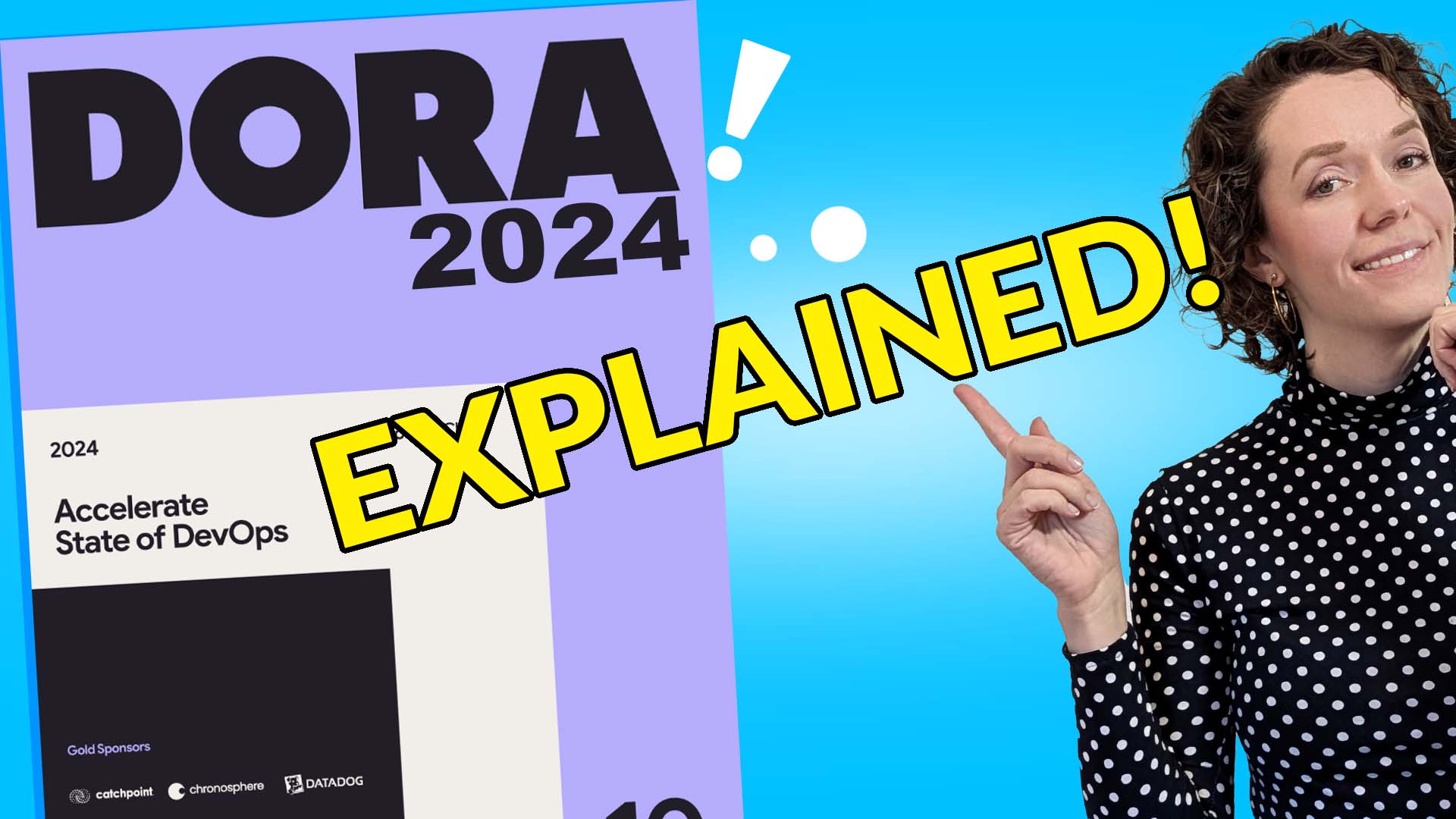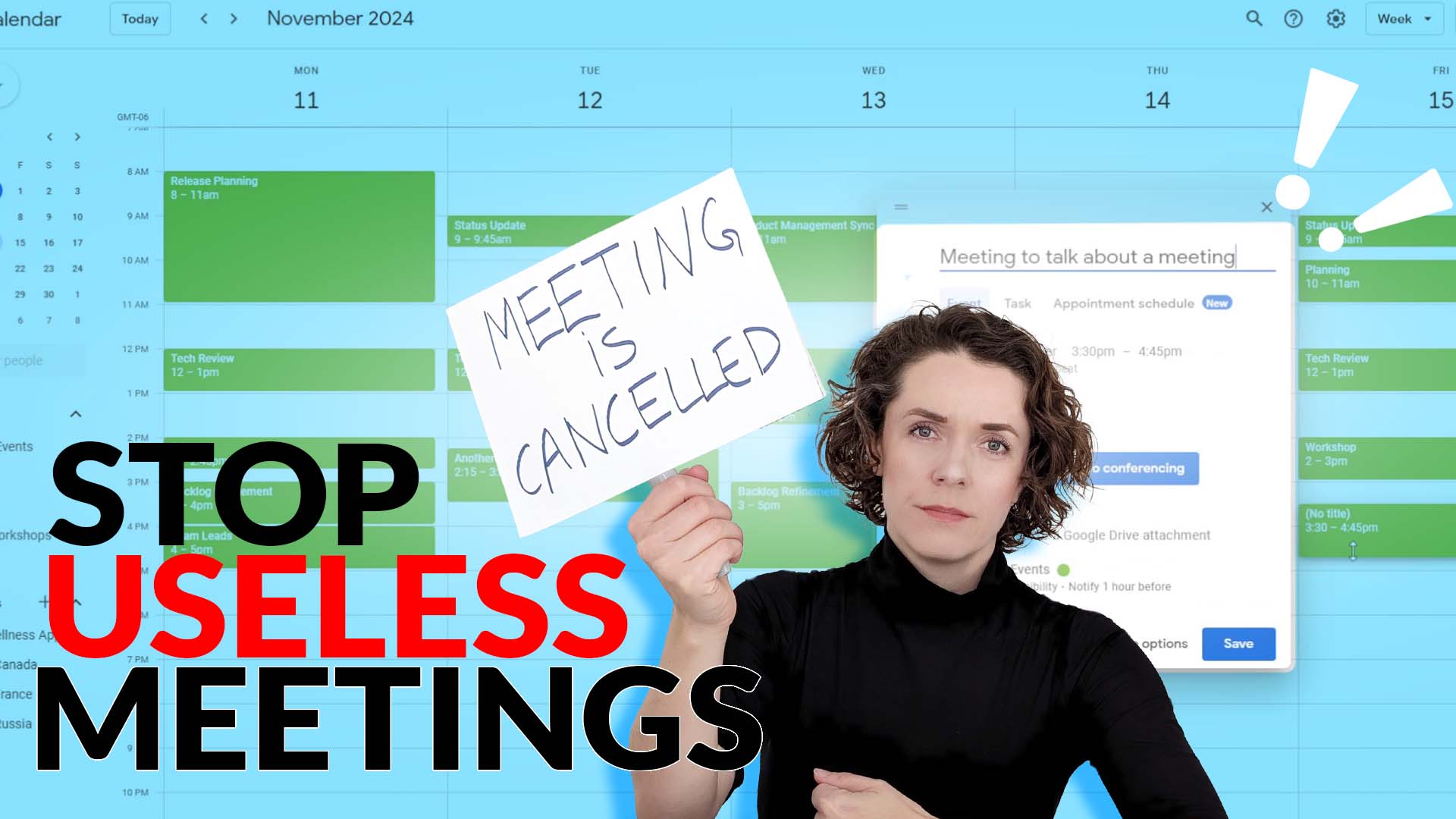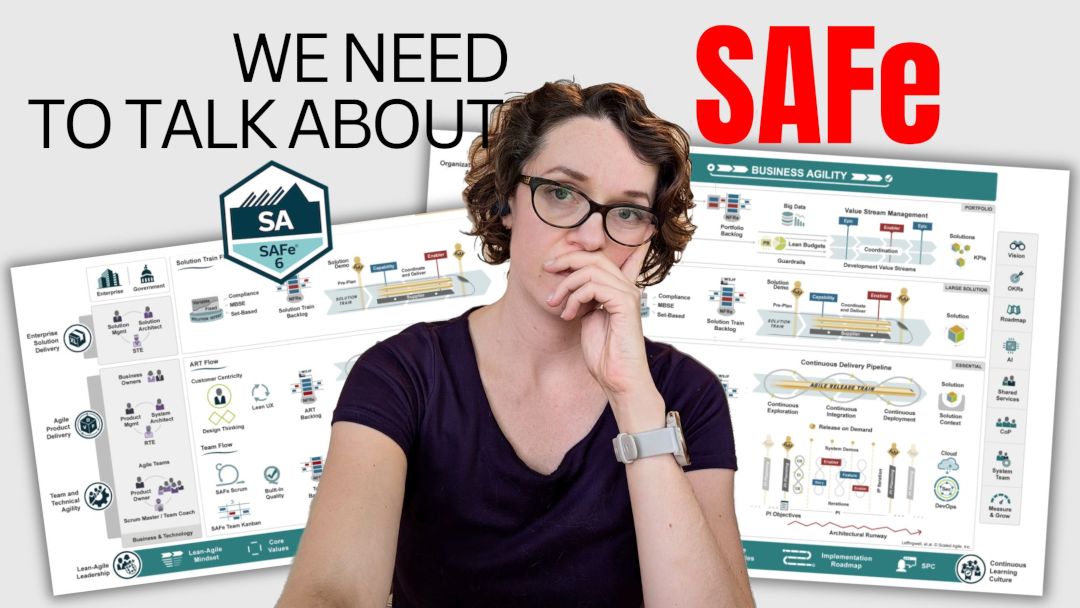I wanted to do this for a while: review my first “real” Scrum Master resume and evaluate it. I hope that it can be helpful for you when you prepare your own CV.
My goal is to critically access everything that I wrote back then in my resume and look at it with the lense of my new knowledge and experience with Scrum.
The final question is: would I invite myself to an interview after reviewing this CV? Let’s find out.
I am no expert in resume writing, and would not be assessing the structure. Rather I want to review the language and how I describe my experience and knowledge.
The Introduction
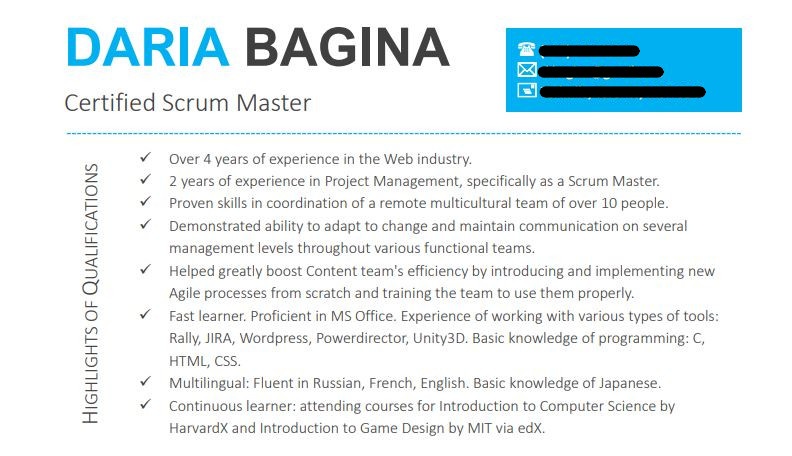
I think it’s good to have a summary of your key qualifications at the top to help the recruiter focus on the most important information. But is what I wrote helpful?
“Certified Scrum Master”
Interestingly enough, I was never a CSM since I opted for a PSM I certification with Scrum.org instead, so this is just misinformation. However, at the time I didn’t even understand that.
CSM and PSM paths are very different and some professionals might look at the differently. So I should have been more specific about what certification I actually have.
How my resume correctly states that I am Professional Scrum Master instead.
“2 years of experience in Project Management, specifically as a Scrum Master”
🤦♀️ This is a big embarassement for me to look back at this.
This phrase clearly shows my lack of understanding of the role of a Scrum Master and how different it is from the Project Manager role.
I remember reading this great blog post by a Professional Scrum Trainer Mark Noneman “Scrum Myth” The Scrum Master is a Project Manager” that helped me understand the differences.
Don’t make the same mistake as I did. Do some research on this topic.
Overall, I’d say that the summary is missing some key points about the role of the Scrum Master. I talk a bit about Agile processes and teaching and coaching. But I missed out on the opportunity to add more relevant information about my overall understanding and experience with Scrum.
You can see that I only barely scratched the surface and still lack the understanding of what Scrum and Agile is about.
Experience
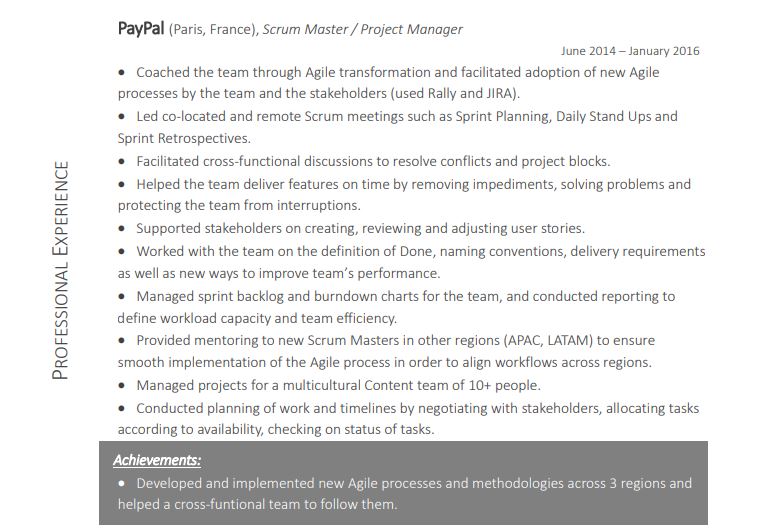
Let’s look at how I highlighted my most relevant Scrum experience in my old resume. Is it actually relevant? What does it tell us about my understanding of Scrum?
“Scrum Master / Project Manager”
Here goes another one. However, in this case it was quite true. I was playing both roles and I know it might be the case for many people.
Looking back at it now, I feel that I was mixing the two roles together. A better approach would be to separate them.
Highlight the Scrum Master experience in one paragraph, and the Project Manager experience in another one. This shows both of the roles, however, doesn’t feel like they are mixed up together.
“Coached the team through Agile transformation and facilitated adoption of new Agile processes by the team and the stakeholders (used Rally and JIRA).”
It started so well, and then ended with Jira. In reality, the experience with implementing the Agile ways of working is very relevant and well aligned with the role of a Scrum Master. Kudos to me.
It’s too bad, however, that I put the focus on the tools there. Who really cares what tools we used? To me it seemed like something that a recruiter would ask, but it is definitely less relevant to the role itself.
“Led co-located and remote Scrum meetings such as Sprint Planning, Daily Stand Ups and Sprint Retrospectives.”
Get your language straight!
“Scrum meetings” and “Daily Stand Ups” are not part of Scrum. As a Scrum Master you are there to teach others. How can you do it if you don’t know the terminology yourself?
If I read something like that in a resume these days, I would wonder if the candidate actually knows Scrum.
“Supported stakeholders on creating, reviewing and adjusting user stories.”
Did I play the role or a Scrum Master or a Product Owner?
In the absence of a Product Owner, a Scrum Master might need to step up and potentially play two different roles. But if it was the case, I needed to clarify why I was doing this task that is by default is not part of the Scrum Master role.
“Worked with the team on the definition of Done, naming conventions, delivery requirements as well as new ways to improve team’s performance.”
Great mention of the Definition of Done and some working agreements for the team. It would be much better if the focus was on the Scrum Team’s effectiveness or continuous improvement, rather than performance.
Remember, the Scrum Master is accountable for the Scrum Team’s effectiveness. So it makes absolute sense for your to focus on that aspect, as long as it doesn’t turn into a traditional parformance management task.
“Managed sprint backlog and burndown charts for the team, and conducted reporting to define workload capacity and team efficiency.”
🤦♀️🤦♀️🤦♀️
Where is the self-managed Scrum Team? Where is the Developers’ sense of ownership of their work?
This here shows a clear lean in towards the role of a Project Manager rather than that of a Scrum Master.
“Conducted planning of work and timelines by negotiating with stakeholders, allocating tasks according to availability, checking on status of tasks.”
Another highlight of the Project Manager role. It is absolutely fine to have it here, but as I mentioned earlier, it would be much better if it was separated from the Scrum Master part.
“Achievements:
Developed and implemented new Agile processes and methodologies across 3 regions and helped a cross-funtional team to follow them.”
It is a great achievement to highlight. Was it perfect? No. But it’s an achievement nonetheless.
So the question remains: would I invite myself to an interview based on my old resume?
Looking at it right now, it depends who I am looking for.
If I was looking for a new Scrum Master, who is just starting out and who I would like to mentor and teach – then yes. There is some good points there to hold onto. As long as the person is willing to learn, I’m happy to help them grow.
I asked the person who recruited me for the Scrum Master role based on my old CV, why they even invited me to an interview. He said:
“It was really hard to get good people with the relevant experience that far North. So I was interviewing more for the person than for the experience. It helped that I was confident in my ability to supply the theory on an as needed basis.”
However, if I’m looking for someone who can lead a team to success with minimum supervision, training or support, I would pass.
It is not a strong profile and there seem to be a lack of fundamental knowledge of Scrum. Even if the resume states a year and a half of Scrum Master experience, many things are lacking here.
And what do you think of my old Scrum Master CV? See any similarities with yours? What would you change and how to put the relevant experience and knowledge forward?
Share your ideas in the comments below.
